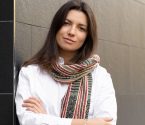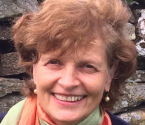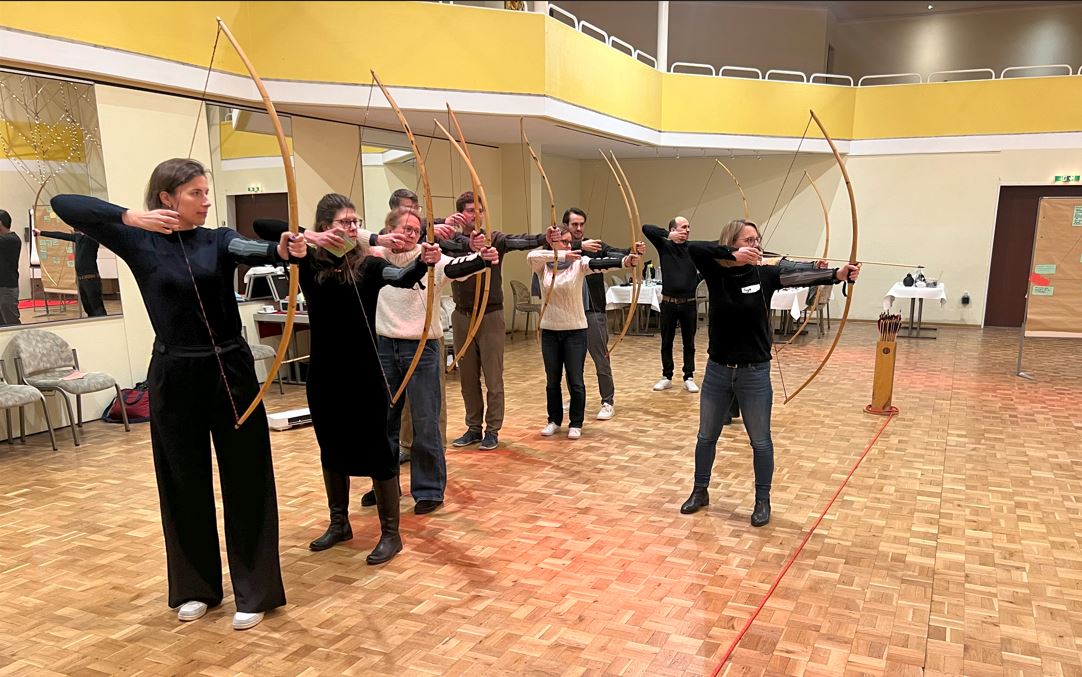
Bertelsmann Stiftung
The third event in the alumni series literally bridged the gap between the topic of “Embodiment” (2023) and “Dealing with Tension” (2024): Annette Birkholz introduced the group to “Systemic Archery”. The connection with schemes from systemic thinking made it possible to illuminate central learning areas for the participants’ leadership practice from a variety of perspectives and to set anchors that they can access directly in moments of tension. Questions about courage and resilience (what does this mean specifically for me in my role?) as important resources for dealing well with internal and external changes were the starting point.
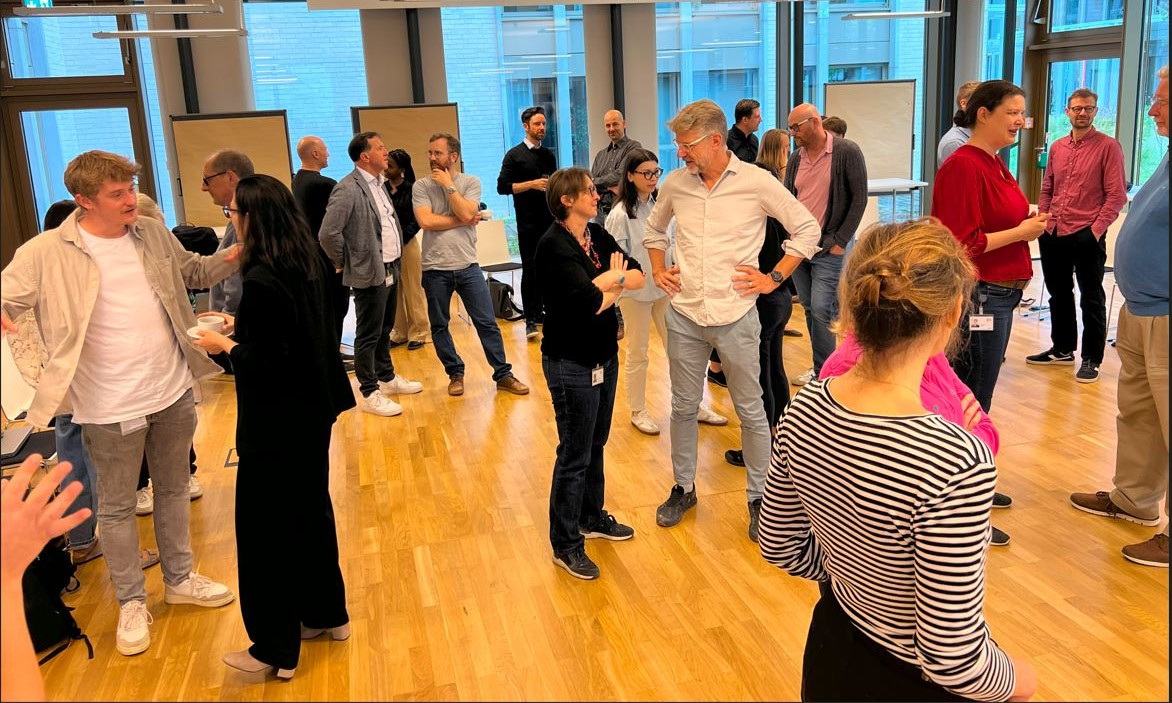
GIZ
The International Hydrogen Ramp-up Program (H2Uppp) is a global project of the Federal Ministry of Economics and Climate Protection (BMWK). It supports companies in the identification, preparation and implementation of projects for the production and use of green hydrogen and derived products – especially in the Global South. The complex team structure and the innovative funding field require agile forms and formats of cooperation, communication and learning. Together with Rouzbeh, I support H2Uppp and the cluster of PtX/H2 projects at GIZ in constantly reflecting on this and adapting it to requirements.
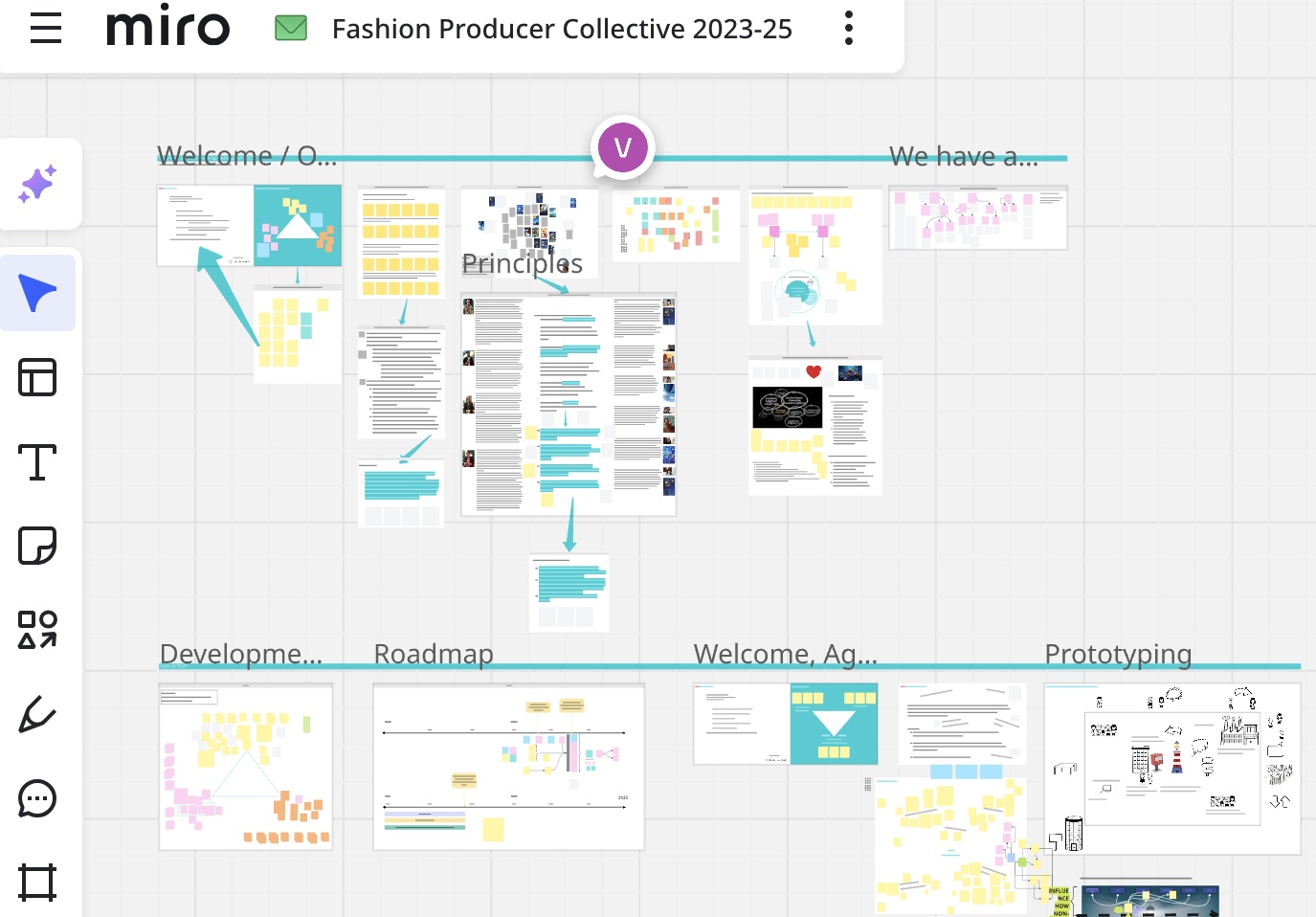
Fashion Producer Collective (FPC) / GIZ FABRIC
Kim van der Weerd, initiator and driving force behind the Fashion Producer Collectives (FPC), recently described the transformation process of the network as follows: “Originating from the Supplier Meetups supported by the GIZ project FABRIC, this community of sustainability experts from textile supply companies (mainly from Asia) has gradually transformed itself into an agile, innovative think tank over the last four years with a lot of diligence, trust and countless contributions”. I have been involved as a consultant for organizational development since 2023 and am delighted with the courage with which new forms of self-organization are being tested here in order to advance sustainability issues in this key industry across time zones and cultural contexts.
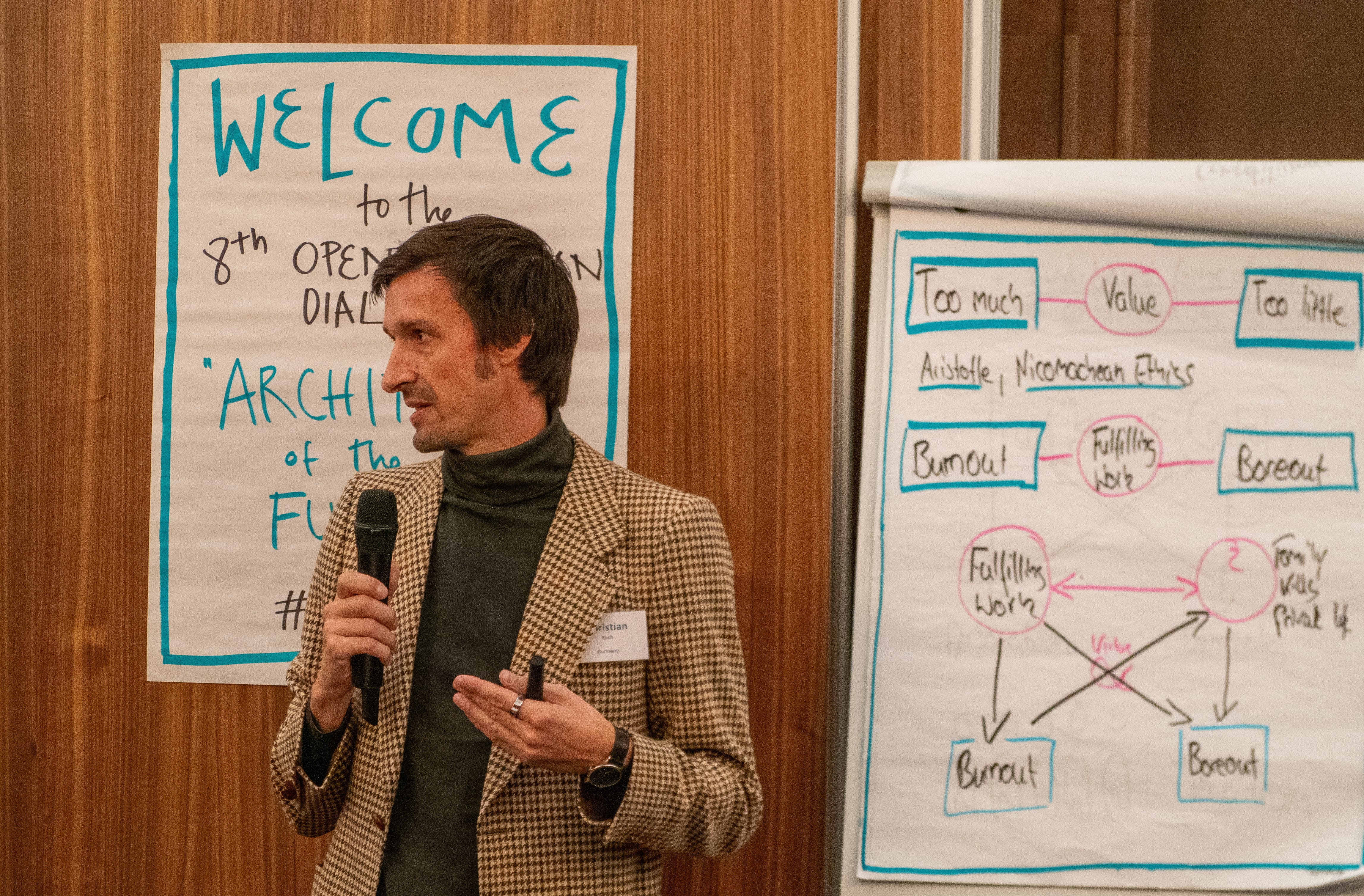
Open European Dialogue (OED) / Apropos
From 6-8 October 2023, 51 members of parliament from across 28 different countries and representing a wide variety of political voices spent three days together in Helsinki at the 8th Annual Policymakers Dialogue “Architects of the Future: European Policymaking in Times of Uncertainty, Technological Disruption and Societal Adaptation”. The OED values lab was designed as a space for addressing these questions that relate to the role of the policymaker in dialogue with colleagues from across the political spectrum. It proposes a simple but not easy framework of systemic thinking for looking at dilemmas and value tensions and having different and new conversations around them.
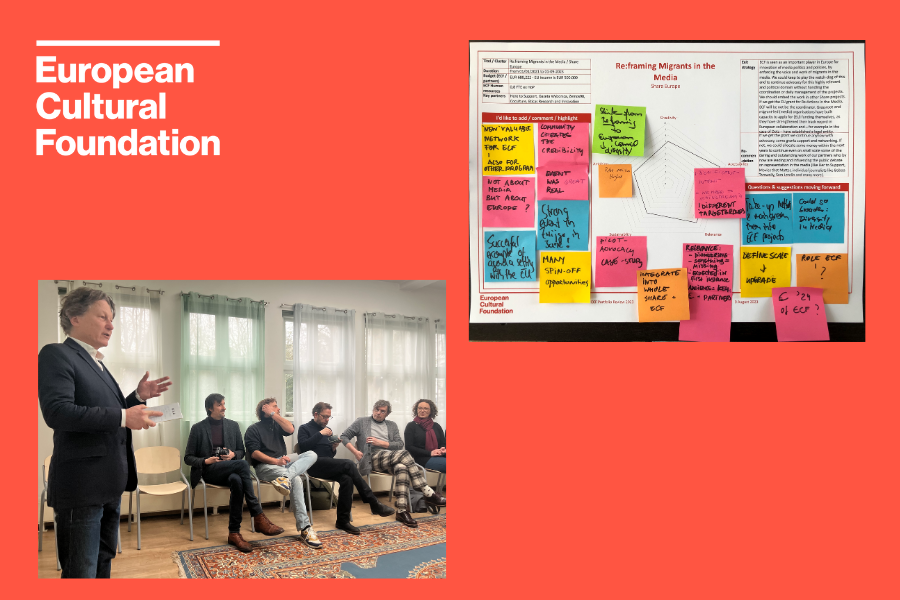
(partly with Raul Correa-Smith)
European Cultural Foundation (ECF)
The European Cultural Foundation’s (ECF) five-year strategy 2020-2025 is reviewed annually during a two-day retreat by the management team and translated into an annual plan. Last year, an assessment system based on 5 success factors was developed that can be used for portfolio analysis and planning and has now been applied. The approach supports ECF in organizational learning and in its mission: to strengthen the European sentiment by developing and supporting cultural initiatives that let us share, experience, and imagine Europe.
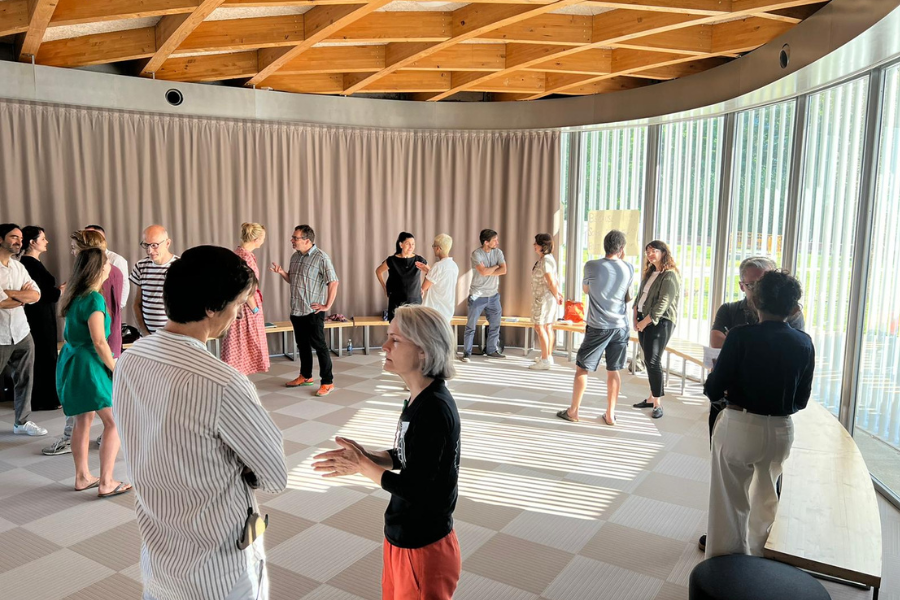
Museum of Tomorrow International (MOTI), BMW-Foundation
FORMS is an international network of future-oriented museums, such as the FUTURIUM in Berlin, the Museum of Tomorrow in Rio de Janeiro or the Museum of the Future in Dubai, which also includes the UNESCO Futures Literacy Chairs. The network meets once a year for a four-day retreat at a Somewhere Place to learn from and with each other and explore new approaches. In 2022, the meeting was hosted by Fundesplai Foundation and Pioneers of our Time in Barcelona, and this year by Kamel Lazar Foundation in Tunis.
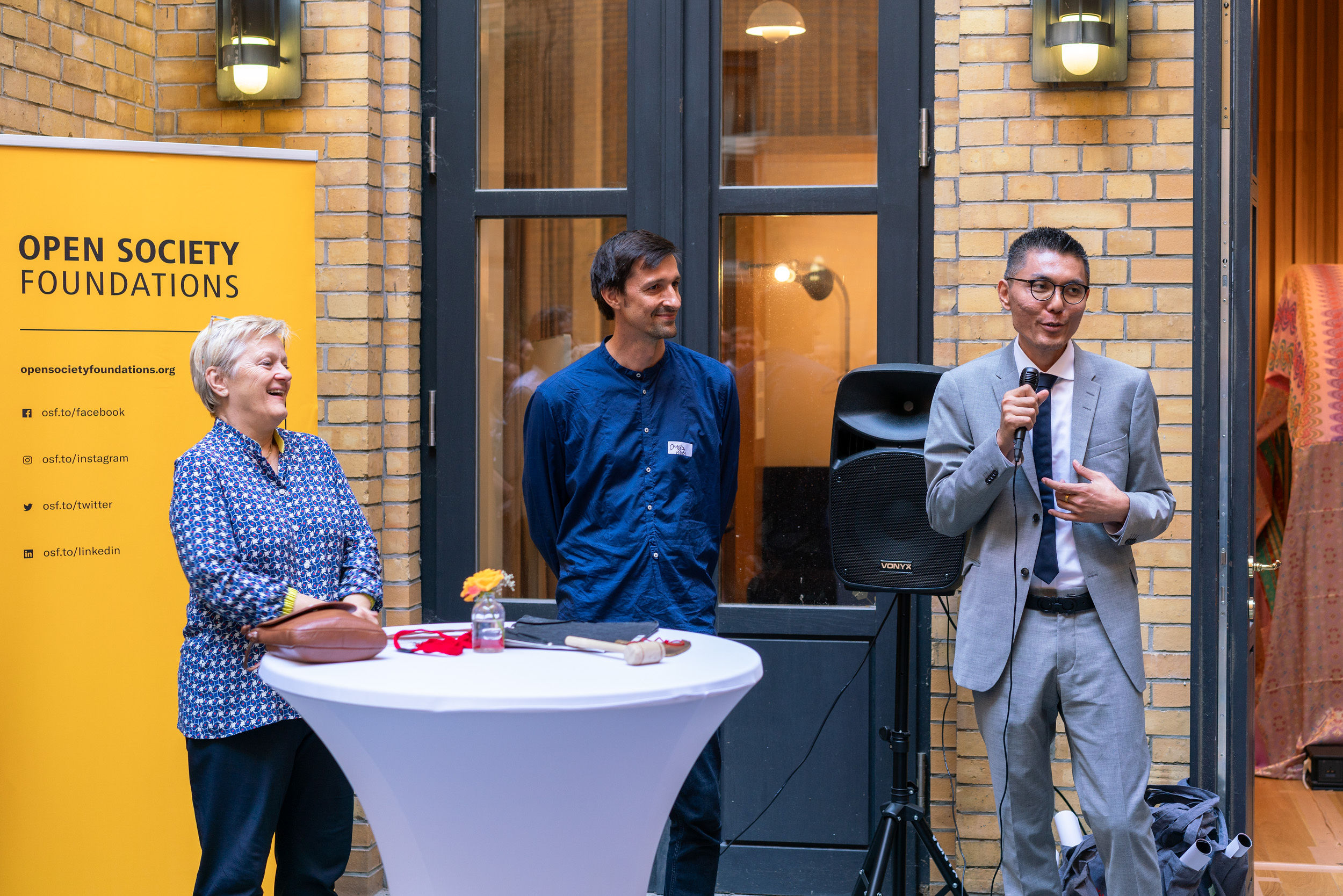
Co-initiator, concept, project management
In cooperation with German Solidarity for Myanmar Democracy e.V.
A forgotten conflict is raging in Myanmar. “We are the seeds: the Art of Myanmar’s Spring Revolution” brought a total of 16 artists in exile to Berlin in July 2023 for an exhibition and series of events to create a stage for encounters and raise public awareness of the situation in Myanmar. We are the Seeds was made possible by the support of Open Society Foundations (OSF), Institut für Auslandsbeziehungen (IFA), DAAD Berliner Künstlerprogramm, by the donors of the crowd-funding campaign – and last but not least by Renate Künast (Member of the German Parliament), who visited the country three times in official capacity and accompanied us from the very beginning.
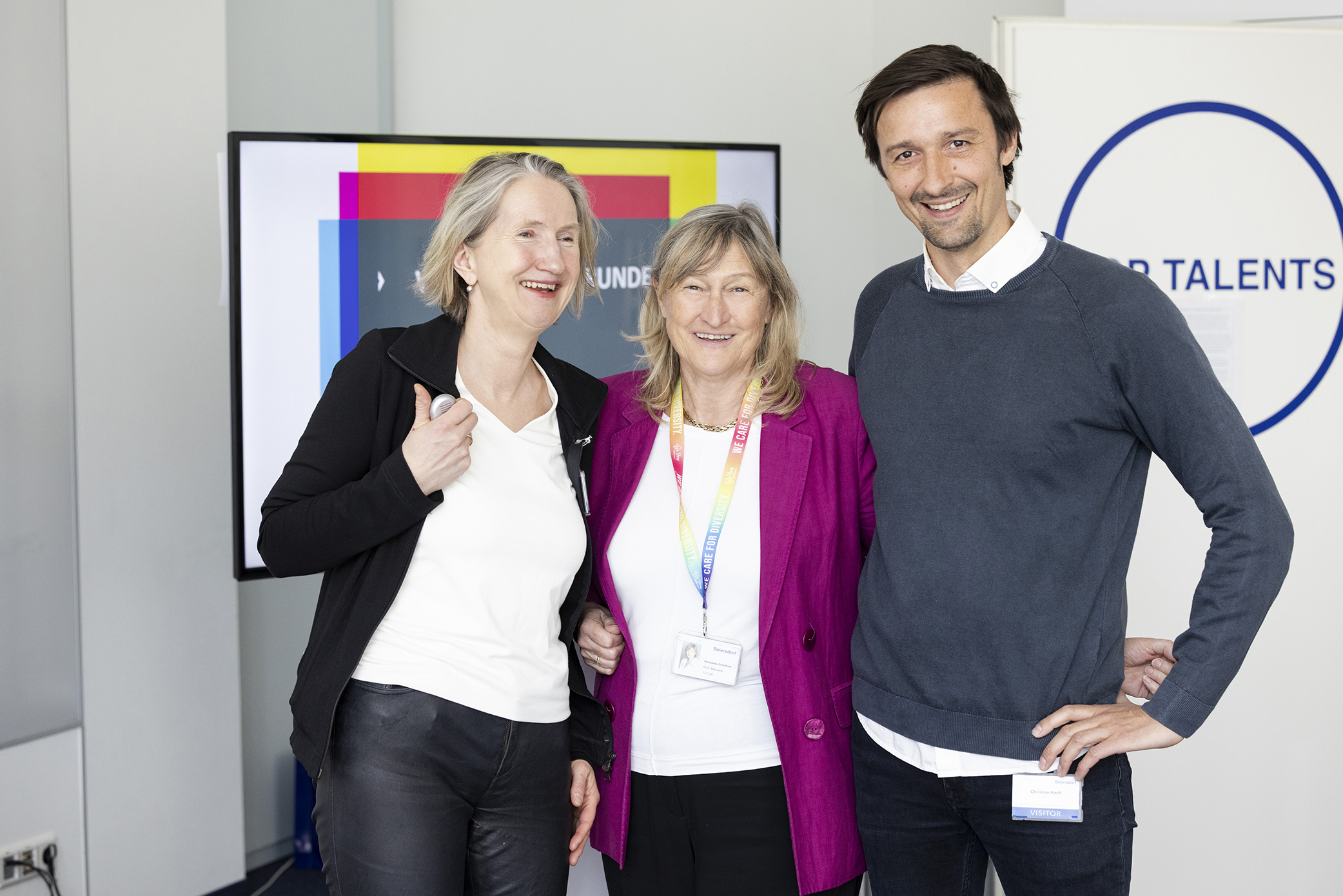
Concept and facilitation (with Dörte Maack, Daniela Dimitrova a.o.)
Innoklusio / Dialogue Social Enterprises
Innoklusio® is a three-year model project funded by the BMAS with 14 pilot companies from a wide range of sectors. The aim is to build up inclusion competence in the companies, to promote people with disabilities and to initiate a cultural change. Innoklusio offers partners, for instance, a mobile exhibition and management workshops that use the dialog in the dark approach and are conducted in complete darkness by facilitators with visual impairments. Innoklusio aims to open up new paths to a world of work in which people with and without disabilities jointly create economic and social added value.
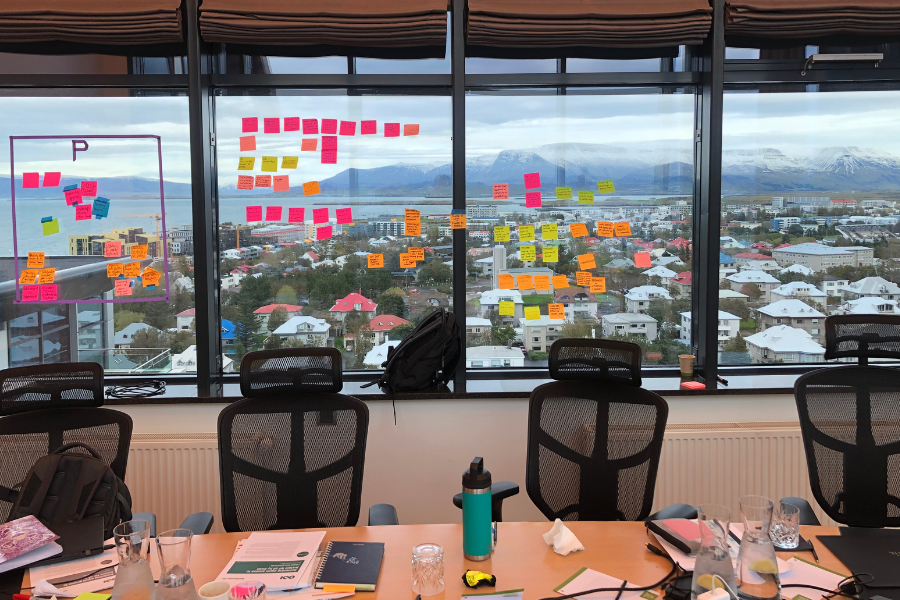
Steering group meetings, stakeholder workshops (2021),
Strategy- and team retreat (2023)
Fund for Global Human Rights (FGHR)
Legal empowerment is an important approach in human rights work. The LEF is a multi-donor initiative (including the Hewlett & Mott Foundation) to support grassroots organizations worldwide. It provides long-term funding and support to activists and NGOs that help people in their communities address systemic injustices and advocate for expanded legal protections. The LEF has been active since 2021 and just distributed $1.5 million in grants in its third round.
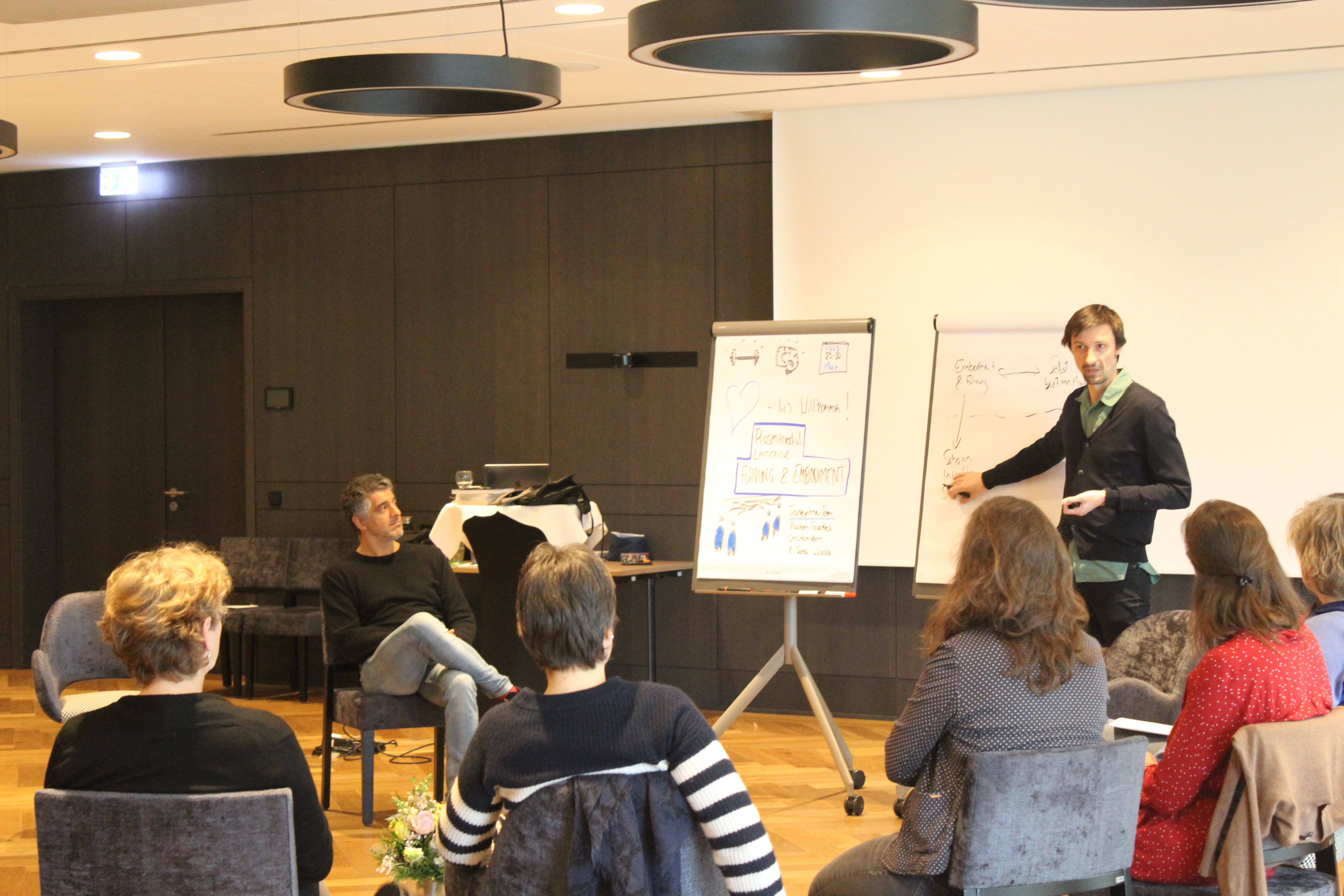
Concept and facilitation (with Rouzbeh Tavakkoli)
Bertelsmann Foundation
What role does the body play in self-leadership, communication and relationship building? And how do I find strength and an authentic attitude in my professional role? We approached these questions with project leaders from the foundation via an online module, learning content in a teams channel and an in-person meeting. Among other things, the focus was on greater awareness of breath, body language and voice, and tips and tricks for controlling one’s own energetic states. A resource for this: the podcast by Andrew Huberman, neuroscientist and professor at the Stanford School of Medicine, see link below.
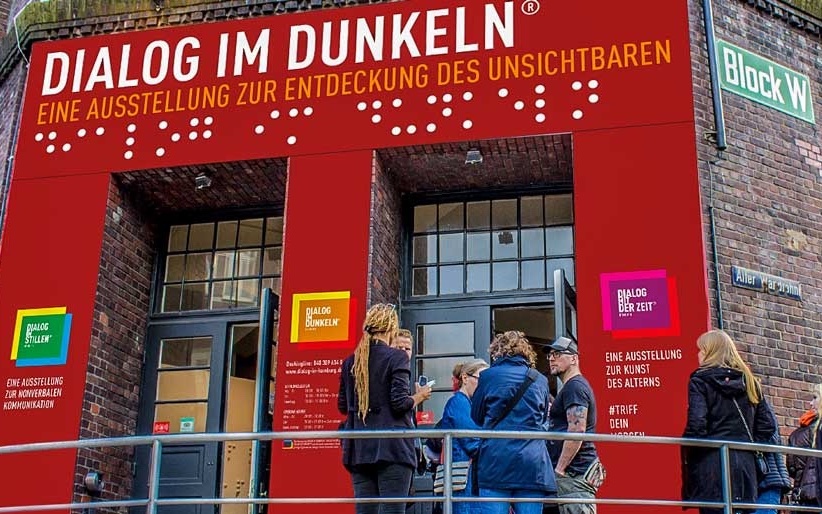
Co-design, facilitation
Dialogue Social Enterprises
For the trainers and guides of Dialog im Dunkeln, the pandemic brought a harsh break. Since June 2020, no more live workshops could take place. Together, we built up skills in designing and conducting online workshops and worked on new formats around the topic of inclusion in companies. As always with Dialog, the focus is on encounter and experience-driven learning, including storytelling and role reversal. The pilot is in progress – get in touch!
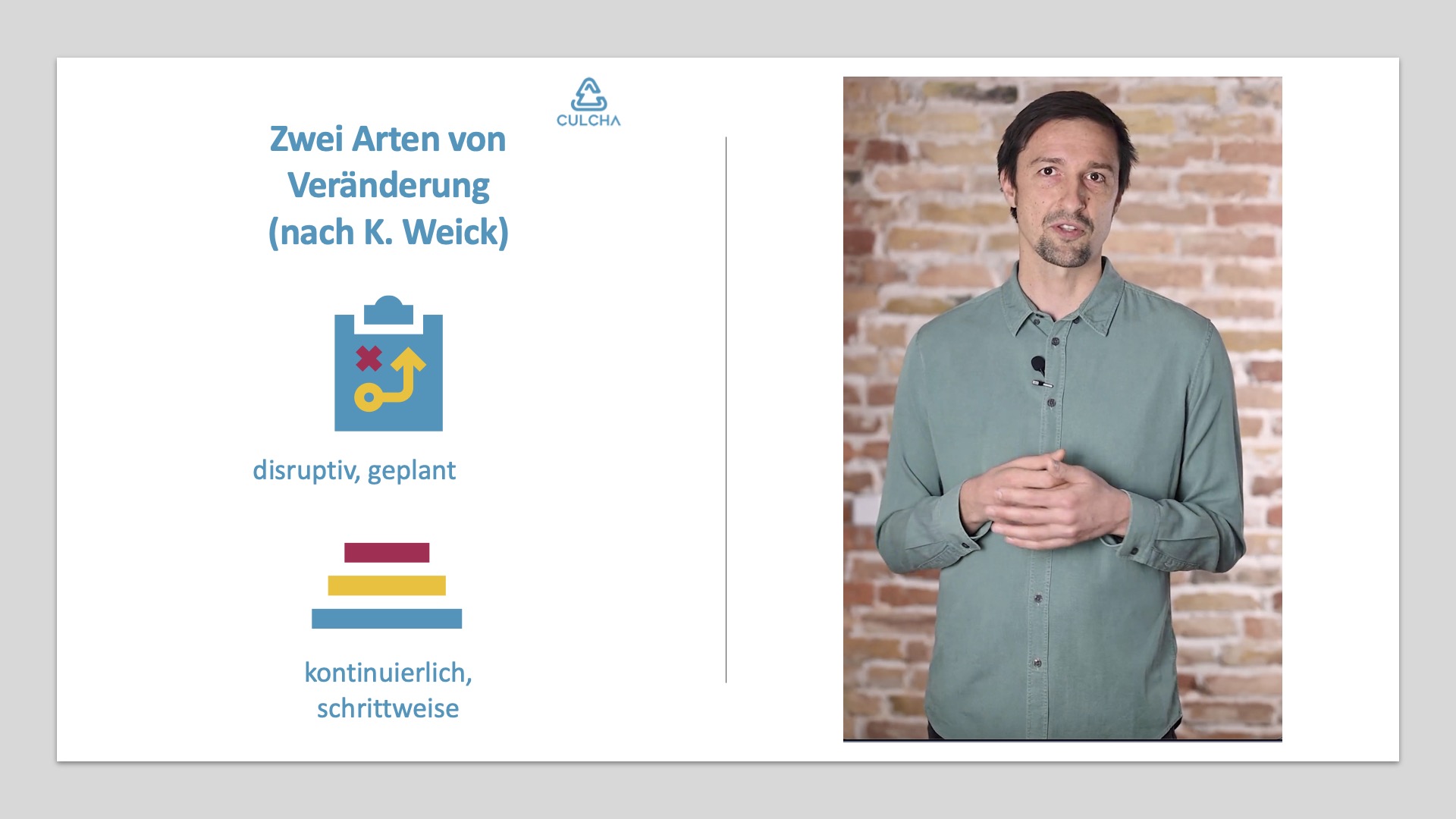
Concept and implementation
www.culcha.com
Culcha is a digital learning platform for companies; content is provided via a proprietary app. Together, we have developed three modules for managers and employees on the topic of change management and the personal handling of change. In the modules, Culcha offers different approaches: Explanatory videos, animated presentations, self-checks, exercises. As a user, this helps enormously to stay on track and to approach the topic from different perspectives.
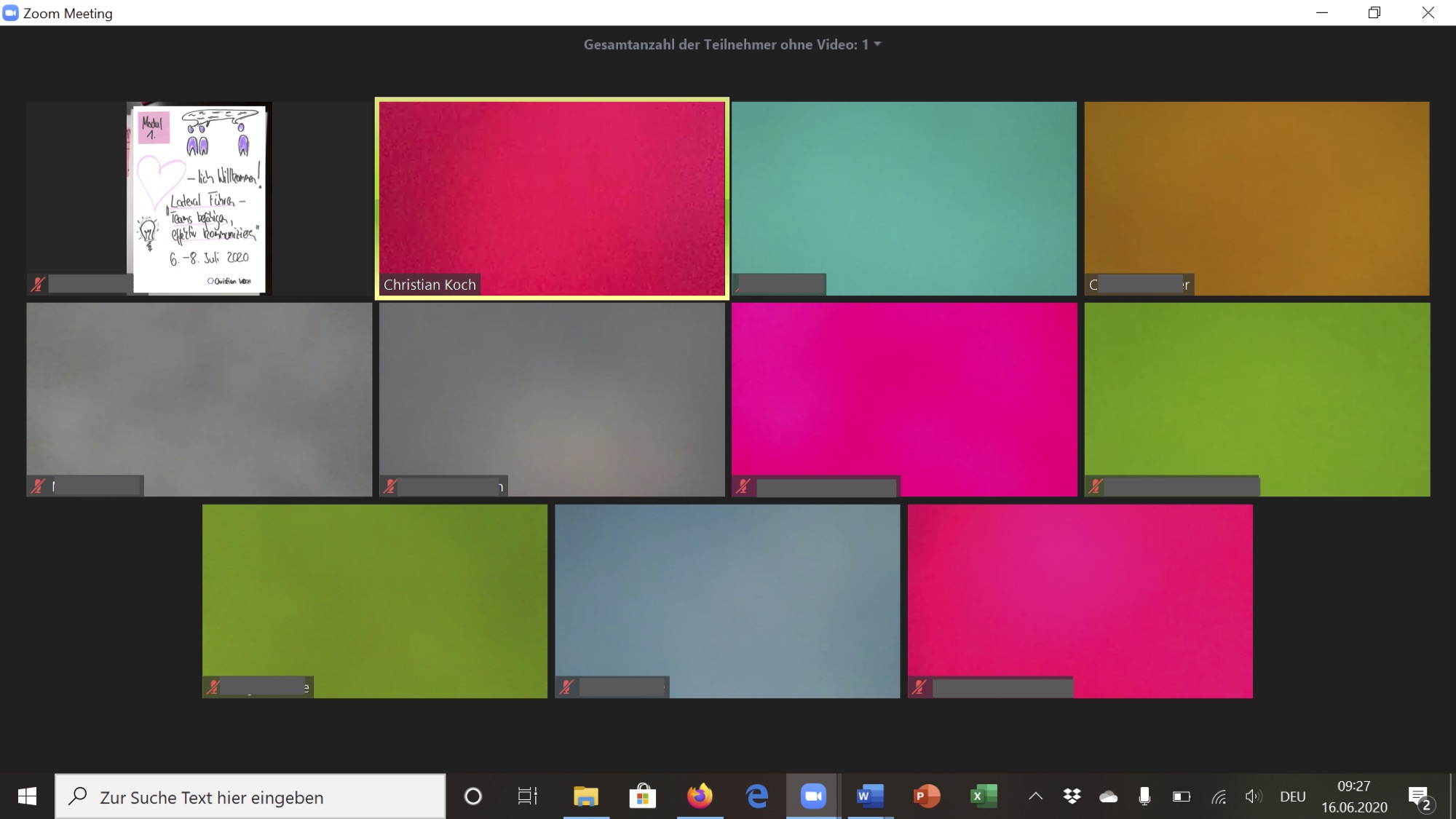
Concept, facilitation
Arvato Financial Solutions, Bertelsmann Foundation
Many teams work remotely now, which poses new challenges for leaders. E.g. communication skills, like active listening, question techniques, summarizing and structuring have been key to keep Zoom meetings productive. But also topics like self-care and resilience have gained importance. And how to strategize if the whole context is constantly changing?! The trainings offer a space to reflect about own patterns and experiment with new forms of leadership behaviour. What I really appreciate is the opportunity to cooperate online, e.g. for one hour sessions on mindfulness by Sukha Yoga Berlin. My hypothesis – the future of leadership development will be hybrid trainings, combining the best of both worlds.
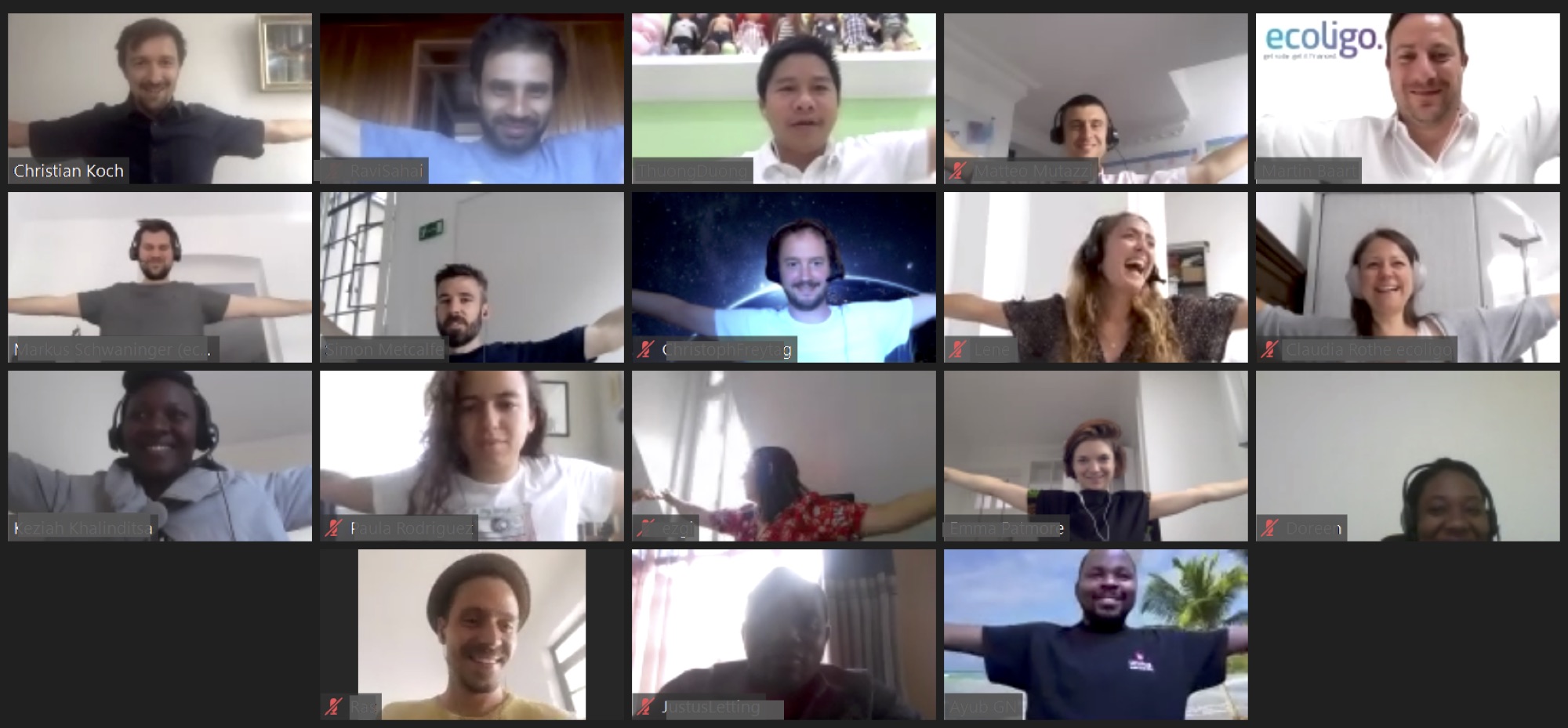
Concept, facilitation, coaching
e.g. ecoligo.investments, Initiatives of Change Switzerland (IofC)
Team development requires interaction and exchange – and it is surprising how well that works with video conference software. Yet, participants attention is short-lived – a good “flow” with smooth transitions between breakout and plenary settings is key for the overall experience and workshops need to be well planned and prepared. Collabarative tools (e.g. online whiteboards like Mural and Miro) have become really intuitive and help to gain overview if they are carefully designed.
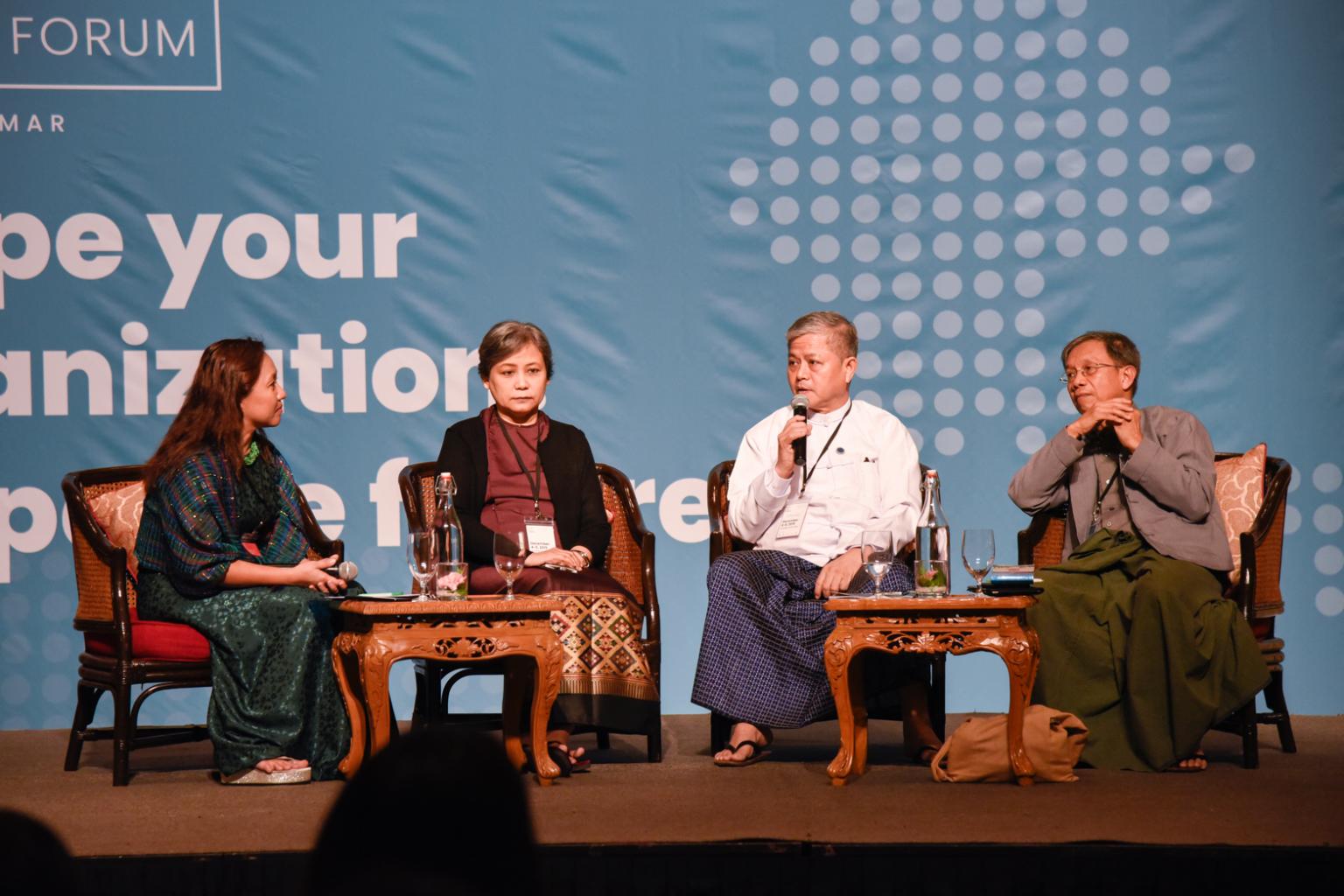
Initiator - concept, implementation
Joint initiative of 5 Myanmar organizations
Change Forum Myanmar offers leaders and managers, practitioners and professional advisors a platform to share, reflect and learn, drawing on insights from change makers in and outside the country. The first two-day event took place in Yangon in December 2019 with approx. 220 participants. Highlights included an input by Ed Schein on Humble Leadership, a lively Open Space, Dr. Douglas O’Loughlin’s keynote on the OD landscape, 16 parallel sessions, a panel on System Change and captivating closing remarks on Myanmar’s transformation by Dr. Tin Maung Than and Dr. Aung Tun Thet.
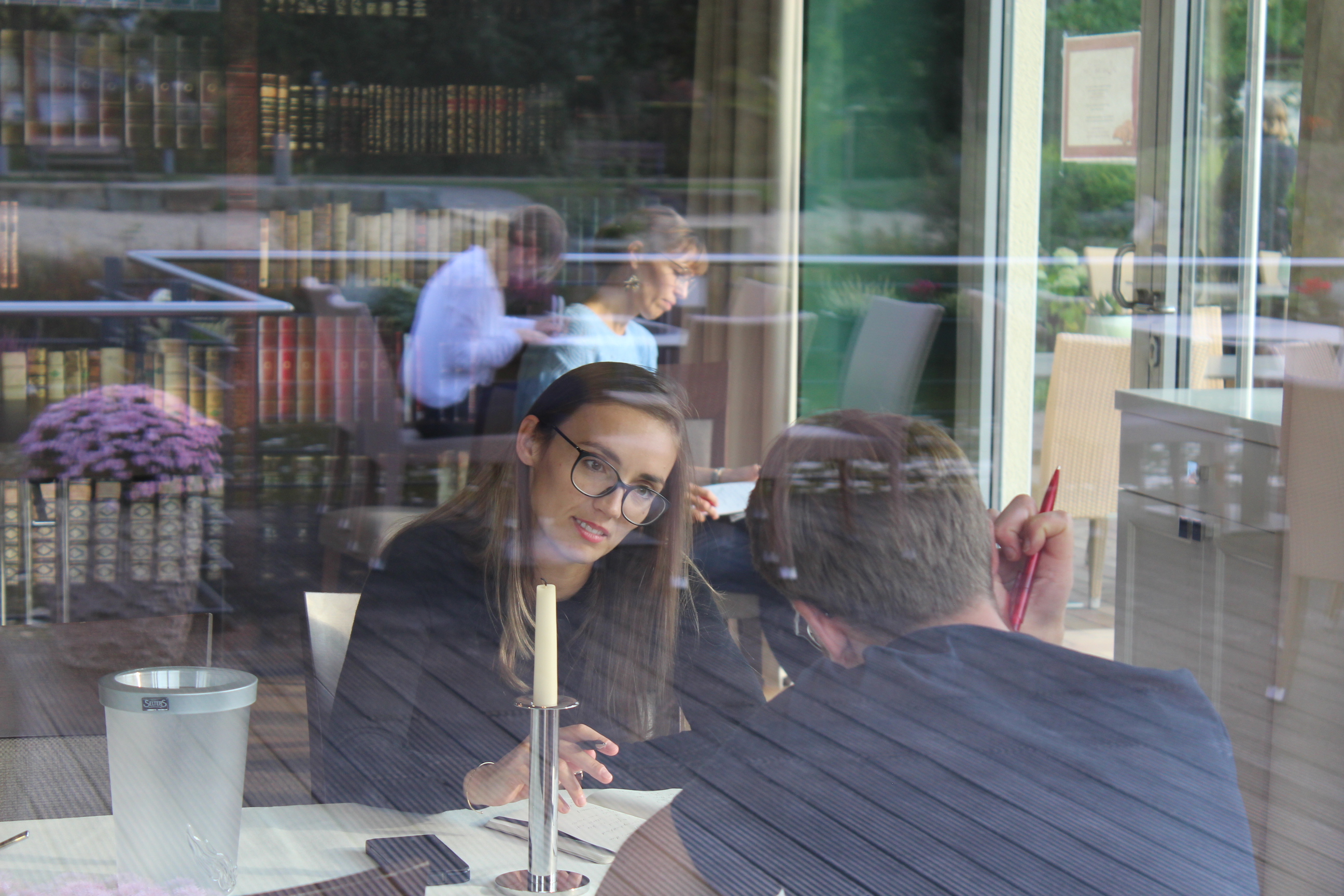
Concept and facilitation
Bertelsmann Foundation
The training takes up concepts of horizontal and lateral leadership and conveys a resource-oriented and solution-focused understanding of steering and managing impact-oriented projects. Own patterns of communication are reflected in experiential settings, tools and approaches (agile methods, design thinking, etc.) are tested with regard to their relevance for foundation projects. Other topics include team development and self-management.
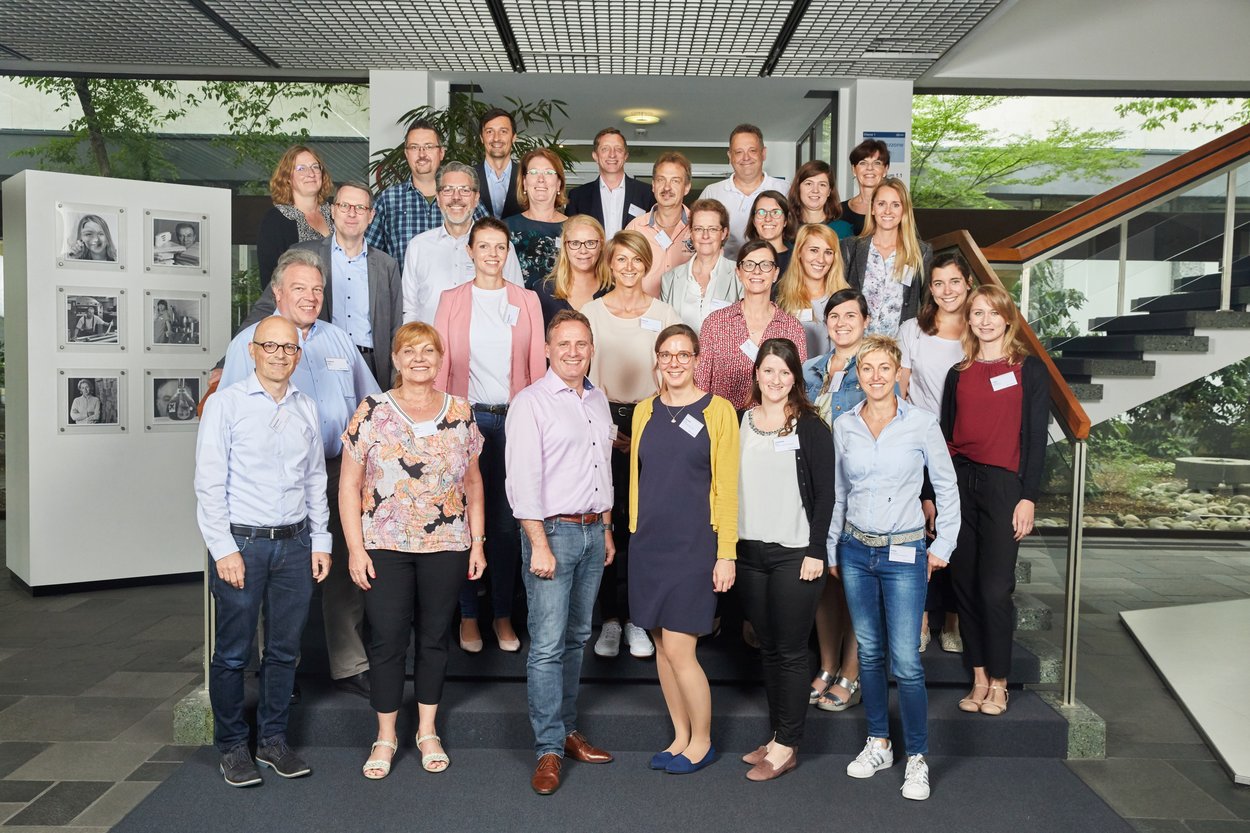
Community development, facilitation
Bertelsmann Group
The Bertelsmann Health Community is a strategic, cross-divisional group that exchanges on the topic of health through a network of all relevant stakeholders in Germany. Working together, the community develops health projects and steers their implementation nationwide. Since May 2019 I support the BHC in the further development of exchange formats and through facilitation of the semi-annual meetings in alternating divisions.
Picture: Bertelsmann Health Community, see link for source below

Creative work, video editing, facilitation
GIZ Myanmar
Over two months, Lenya Bass and myself accompanied GIZ Myanmar in a creative process of telling stories from the field. Teams developed short movies that put beneficiaries and their perspectives at the center. The ever increasing complexity of development cooperation sometimes lets us lose sight of what really matters, what inspires us and what makes this work so rewarding. Well-told stories can be a base for reconnecting. The process culminated in the annual event with more than 200 people co-facilitated by our MyCAN alumni Htate Htar Pont, Thet Win Htun and Kyaw Thu.
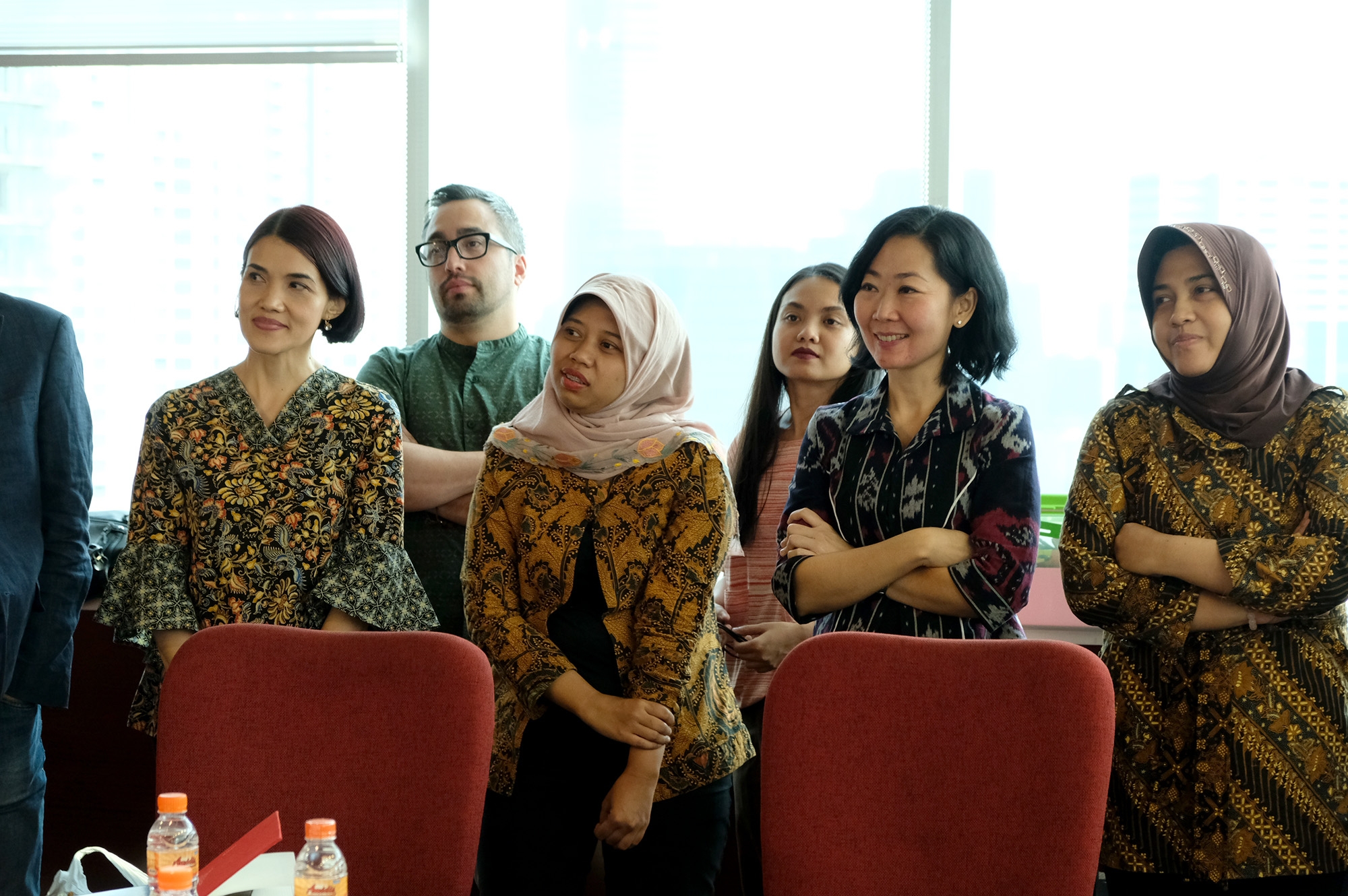
4-days design sprint, handbook
ISED project (implemented by GIZ, supported by Bappenas, Indonesia)
Private sector actors are seen as a key player in achieving development objectives such as the Sustainable Development Goals (SDGs). Together with Impact Hubs Berlin and Jakarta, we developed and implemented a design thinking based training for ISED Indonesia to promote Inclusive Business partnerships. The training organized by ISED involved 4 Indonesian companies, GIZ staff members and Government officials. Our lessons learned were integrated into Impact Hub Berlin’s BEYOND series and a handbook, available for download (link see below).

Technical advice
Wikimedia global / WG Roles & Responsibilities
The Wikimedia movement aims at becoming the essential infrastructure of the ecosystem of free knowledge by 2030, focusing on two objectives: knowledge as a service and knowledge equity. To advance with this strategic direction, Working Groups composed of people from across the movement are developing recommendations coordinated by a Core Team. I’m supporting the WG “Roles & Responsibilities” with inputs on Change Management, Organizational Design / Self Organization (Teal) and with storytelling work.
Picture: WG Meeting in Utrecht with Madelon van Tilburg (Buurtzorg)
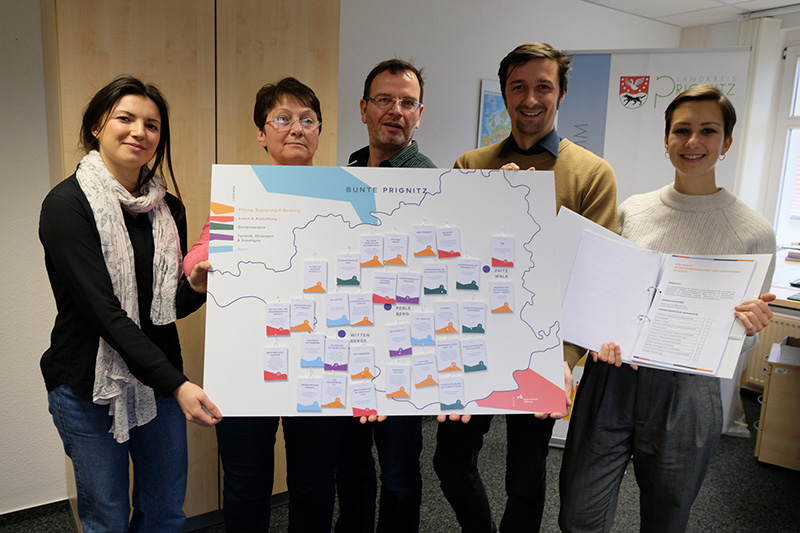
Process consultancy, Facilitation, Human-centered Design
Robert Bosch Foundation / District Prignitz
The Prignitz is colorful! For Robert Bosch Stiftung, we examined and evaluated successful examples of civil society and volunteer work for migrants and refugees in the beautiful Prignitz (Brandenburg). And we discovered much more than even the well-informed Angelika Hahn and Heimo Grahl (District Administration Prignitz) had expected. Together with Lenya we created interactive stakeholder maps which we handed over to key multipliers.
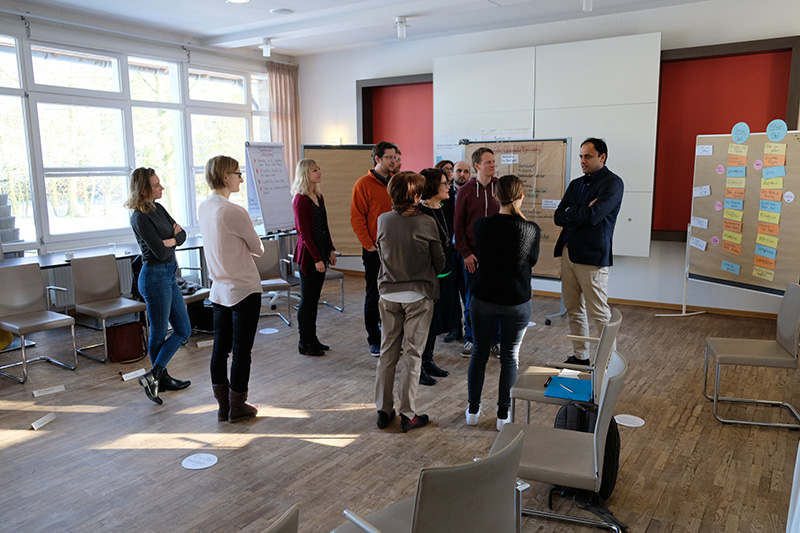
Concept, Implementation (together with Ellen Künzel)
Bertelsmann Foundation
The Bertelsmann Foundation aims at helping people proactively shape their future through its projects. Project managers often work directly or indirectly in advisory roles. For this context, systemic approaches offer a wealth of useful models, methods and tools. The course comprises 5 modules and focuses on the intersection of policy advice, cooperation management and organizational development in which the foundation operates. The third round is scheduled for late 2020.
